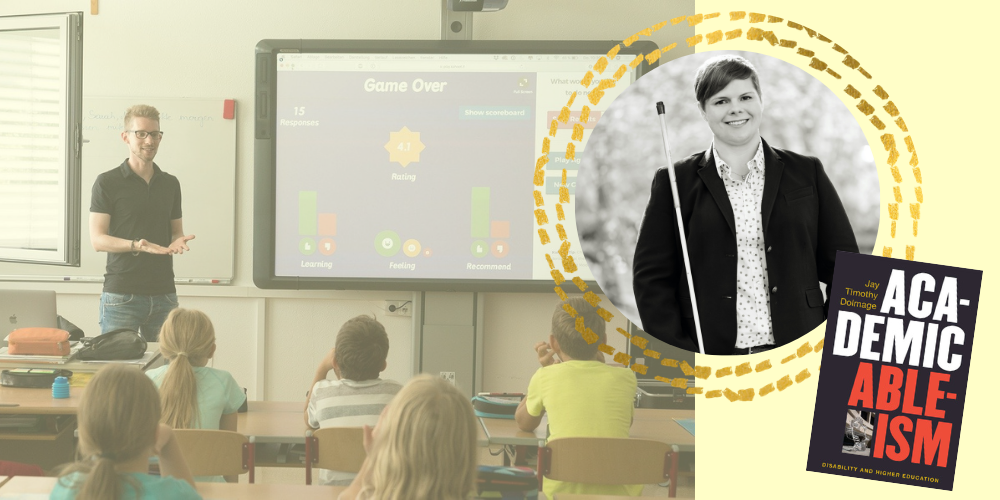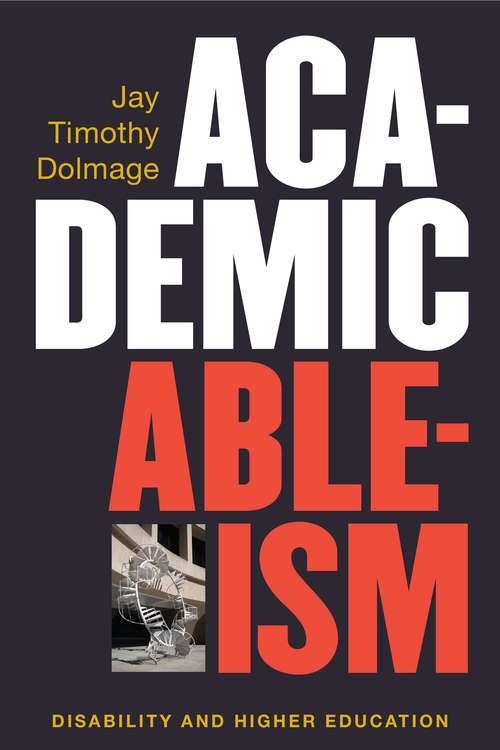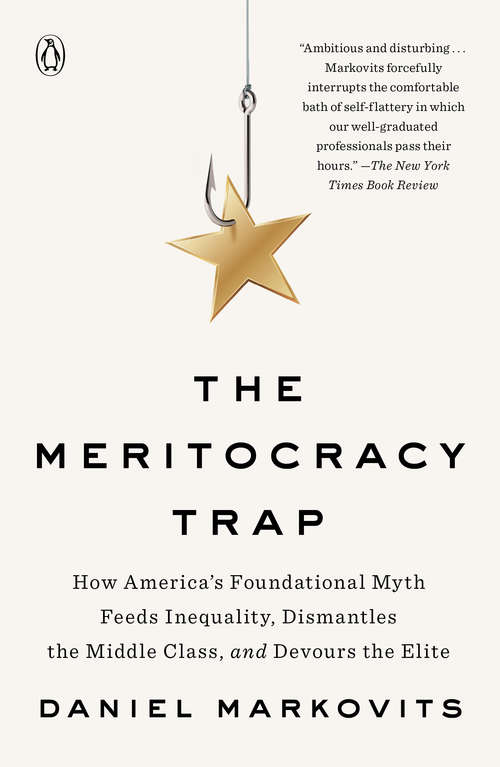The assistant professor of special education is a blind academic, teacher of future educators, and advocate for accessible educational materials
Natalie Shaheen, EdD, has so many overlapping facets to her personal and professional lives that it’s hard to know where to start. Her expertise ranges from preparing tomorrow’s teachers to embrace students with disabilities to creating learning environments that are born accessible to all learners. Natalie’s work focuses on equity and access for disabled students in technology-mediated learning with the goal of reimagining technology-mediated education as a place that values and actively makes space for disabled learners. Her focus is consistent with Benetech’s mission: make information accessible so that everyone can learn, work, and pursue their dreams.
As an Assistant Professor of Special Education at Illinois State University, one of the largest producers of teachers in the country, Natalie encourages future teachers to acknowledge that disabled students are everyone’s responsibility. “It is the special education department’s responsibility to help pre-service teachers develop confidence and self-efficacy around their ability to serve disabled students, whether they’re going to be a special education or general education teacher,” she says.
“Disability is central to higher education, and building more inclusive schools allows better education for all.”
Jay Timothy Dolmage, Academic Ableism: Disability and Higher Education
Fewer than four percent of academics identify publicly as disabled. Natalie is in that minority as a blind academic, and she recognizes how important it is that a disabled person teaches the Introduction to Special Education class. “Not only are future teachers learning about disabilities, but they’re learning that from a disabled person. So the students realize that disabled people aren’t just people who need help, but people who teach things and lead things and run meetings, which is a paradigm shift for most of the students.”
Person-First vs. Identity-First Language
According to Natalie’s website: “I use identity-first language (i.e., disabled person) instead of person-first language (i.e., person with a disability), as this language more accurately reflects my view of disability as a component of identity and a point of pride.”
Natalie’s position on language conventions around disability is rooted in her lived experience as a blind person. Disability is one human characteristic, and it is as important, and no more important, than any other characteristic. For example, “I’m a blind person, I am also a queer person, and I am also a strong person. And when I talk about all those things, I use the same syntax,” she says. “By giving disability a syntax that’s different – like saying I’m a person who is blind — that calls out my blindness as something so different that it needs different syntax.”
“When I speak about myself, I always use identity-first language,” she continues. “When I speak about other disabled people, I default to identity-first language until I’m talking to an individual person. And if an individual person either expresses to me explicitly or models for me in their own language that they use person-first language, then I’m going to respect their words. Just like I’m going to respect somebody’s pronouns and other identity markers.”
This issue needs greater publicity, especially in the field of special education, because most special educators have no idea that there is a convention other than person-first language. “My students learn about both conventions. My advice is to pick the convention that aligns with what they believe about disability, but respect individual people’s and communities’ preferences.”
From Advocate for Digital Accessible Materials to User
Natalie has been using Bookshare, an ebook library for people with reading barriers, since she attended graduate school, and now she uses it as a professor to read academic books. “Recently, I needed a book that was published decades ago, The Social Construction of Technological Systems, and the university library didn’t have it. So I checked Bookshare and found it. Bookshare often gives me better access to books than my sighted colleagues have, which is pretty awesome. That doesn’t happen very often.”
“Reading is my primary pastime. I’m often reading several books at once: academic, nonfiction, fiction, and sometimes a kids’ book for one of my classes. Bookshare’s membership for non-students is very reasonable and saves me a lot of money, because if I had to buy every book I read, it would be expensive.”
Natalie typically reads audiobooks with the support of Braille and tactile or enlarged graphics. “I like Voice Dream Reader because I can increase the narration speed up to 670 words per minute. The voice I listen to is Samantha.” She just finished The Meritocracy Trap.
Words of Advice
In closing, Natalie shares this advice for blind and low vision students or adults. “Get connected! Spend time with others in the blind community who can help you learn and avoid trial and error and frustration. There are blind folks all over the country and they want to get to know you and support you.”
Natalie Shaheen, EdD, is an assistant professor of special education at Illinois State University.




Be First to Comment